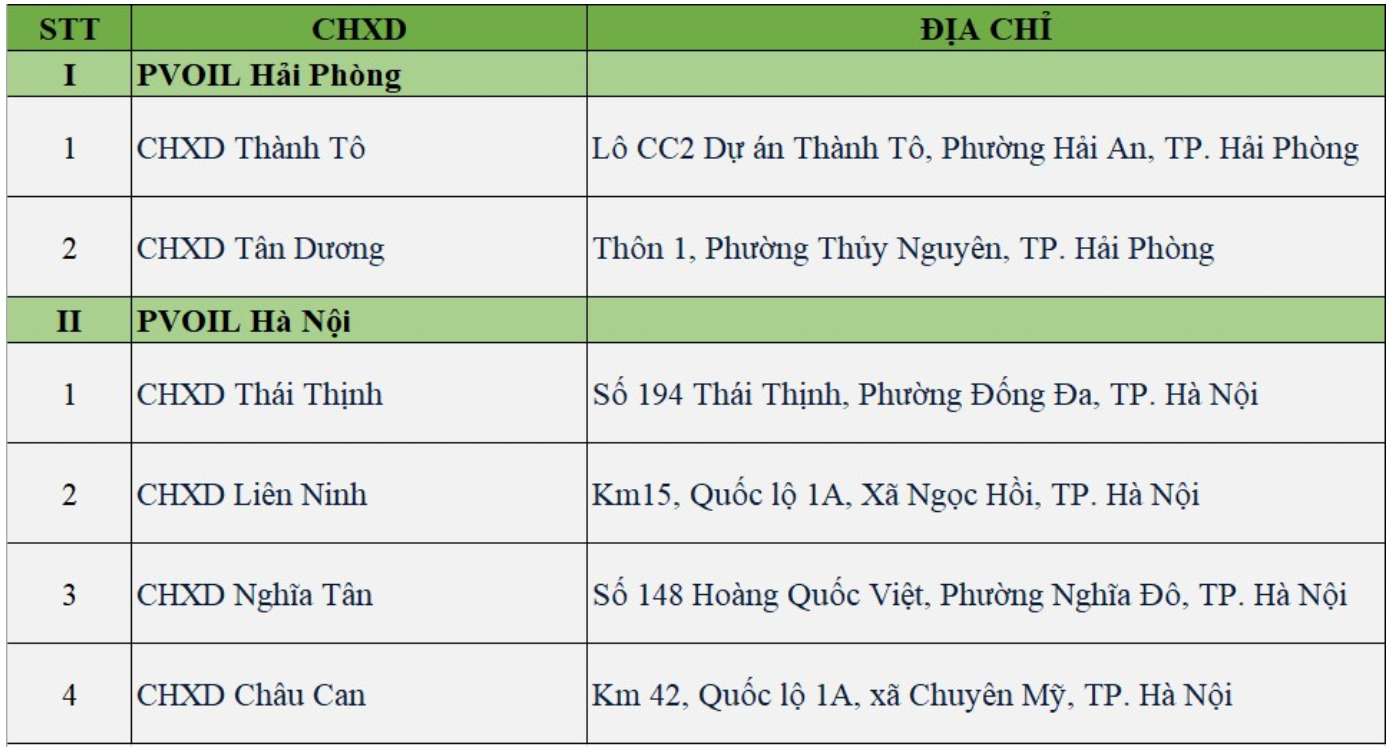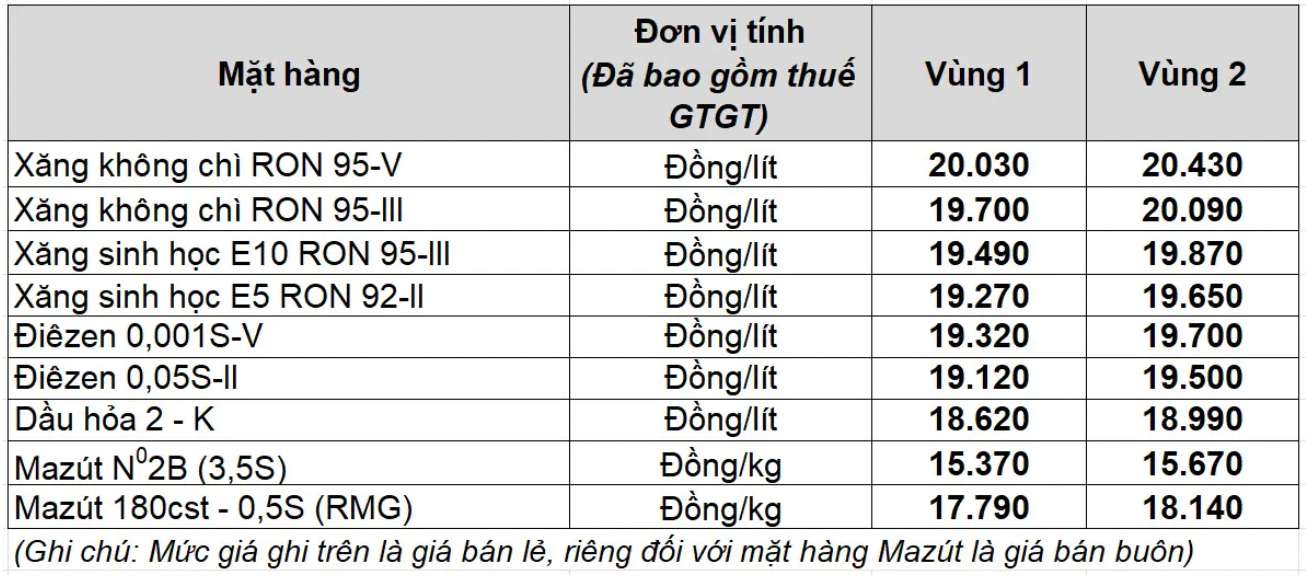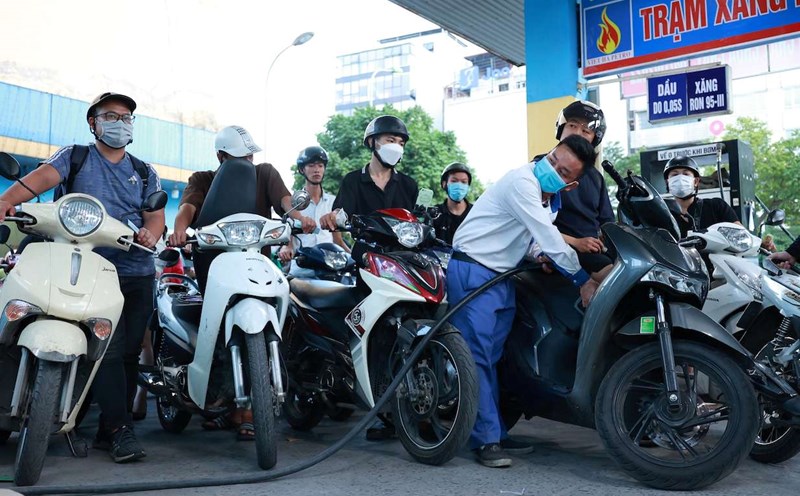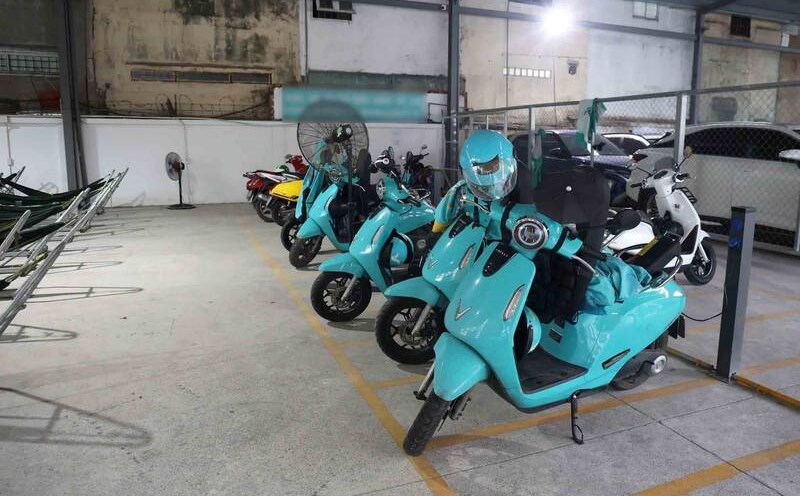From August 1, 2025, Vietnam National Petroleum Group (Petrolimex) will pilot the business of E10 Biogasift (E10 gasoline) at 36 gas stations in Ho Chi Minh City (before the merger) to assess the market and practical implementation capabilities.
Similarly, Vietnam Oil Corporation (PVOIL) is piloting the sale of E10 RON95 biofuel at gas stations in Hanoi and Hai Phong.
PVOIL representative said that the unit has developed a plan, prepared to invest, and upgraded the infrastructure system for the processing and trading of biofuel to prepare for the mass implementation of E10 gasoline from January 1, 2026; affirmed PVOIL's commitment to implementing the Government's policies and roadmap, contributing to environmental protection and sustainable development.
A survey by Lao Dong Newspaper of gas stations in Hanoi preparing for the pilot shows that units are preparing to sell E10 gasoline from August 1, 2025.
A sales staff at a gas station in Hanoi said that the store sold out the E5 gas tank and will upgrade and sink the tank to import E10 gasoline. The store will not demolish or rebuild but will use the E5 pumping column after it has been properly treated to do business in new types of gasoline.
Information on 6 E10 gasoline stores from August 1, 2025 of PVOIL in Hanoi and Hai Phong is as follows:

Currently, E10 gasoline prices are being sold at VND19490/liter (zone 1) and VND19,870/liter (zone 2).

Compared to RON 95-V gasoline, E10 gasoline is priced at 540-560 VND/liter.
Compared to RON 95-III gasoline, E10 gasoline has a lower price of 210-220 VND/liter.
Compared to E5 gasoline, E10 gasoline has a price 220 VND/liter higher.
E10 is a biofuel that includes 90% conventional non-lead gasoline and 10% Pethanol; the name E10 also comes from that.
Before the E10 was introduced, conventional gasoline only contained a maximum of 5% of ethanol and could be used for all gasoline-powered cars without any adjustments. E5 gasoline is similar to A92 and A95 gasoline. This is a type of gasoline made from 95% A92 gasoline combined with 5% Pethanol deficiency (99.5%).
Ethanol is an alcoholic fuel produced from the fermentation of plants such as sugarcane, grains and their byproducts.
Unlike conventional non-lead gasoline, ethanol is considered somewhat carbon-neutral, because during growth, crops absorb more CO2 than the amount emitted when producing and burning fuel. This helps to partially offset the greenhouse gas emissions.











